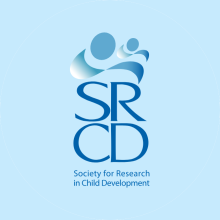August 2009 Spotlight on the SRCD Policy Fellow: Ann Rivera, Ph.D.
2008-2009 Federal Executive Branch Policy Fellow
Since joining the Office of Planning, Research and Evaluation (OPRE) in the Administration for Children and Families (ACF) as a fellow almost one year ago, I have had the privilege of occupying a field-level seat to witness how child development knowledge can effectively inform public policy at an extraordinary moment in history, a moment of tremendous promise and very real progress in this area.
Working within OPRE’s Division of Child and Family Development, I have collaborated with federal staff and colleagues in academia and private organizations on projects intended to provide research and evidence to guide strategic planning, performance measurement, policy, and program analysis for ACF programs and early childhood policies more generally. This has included: developing supplemental instruments for the Early Childhood Longitudinal Study to collect data regarding child care; coordinating the program announcement, review and award of the Child Care Research Scholars Grants Program to fund dissertation research related to child care policy; planning the annual meeting of the Child Care Policy Research Consortium; developing design options for a study of Migrant/Seasonal Head Start programs; reviewing instruments and procedures for Head Start’s Family and Child Experiences Survey; and developing resources for researchers, practitioners or policymakers on a variety of topics relating to early childhood, family functioning, and related programs. I have also participated in many working meetings to shape the design of federal studies and to identify what the research tells us, and maybe more often, where the knowledge base is lacking.
My experience in OPRE over the past year has helped to build on my previous research and evaluation work with community-based programs serving children and families. Both experiences center on collaborating with program partners to identify timely research questions and analyzing research as it applies to social service programs. The major differences lie in the national scope of OPRE’s work—developing research to inform policymakers and program administrators about national programs that serve a few million children (e.g., Head Start, Early Head Start, and Child Care Development Fund) and balancing the need for timely and generalizable information with recognition of the great diversity of the populations served by these programs and the diversity in implementation of ACF programs.
Small steps can lead to big improvements in policy, as in developmental science (and as in space travel, civil rights, etc.) I have witnessed this in my work in OPRE pertaining to young dual language learners. The work of a predecessor, Behnosh Najafi (Executive Branch Fellow, 2006- 2008), laid significant groundwork for the program announcement I had the opportunity to help develop this year. A roundtable organized by Dr. Najafi and the efforts of many individuals in the federal government and in academia helped to clarify the need for a major investment to push the field of research in addressing how to best assess developmental progress and needs among young DLLs in order to evaluate the effectiveness of programs in supporting this substantial part of the population.1 In this past year, I have collaborated with colleagues to build a next step in this pyramid of efforts: the Center for Early Care and Education Research: Dual Language Learners will be established to provide national leadership to help advance the field in addressing these questions.2 Through analysis of the research, of federal initiatives and specific programmatic concerns, writing the announcement, and coordinating the grant review, I have contributed to the development of this exciting project that promises to guide future research and, ultimately, to contribute to improvements in programs and public policies.
Among the biggest thrills this position has afforded me is the opportunity to collaborate with and meet so many people working to provide information to improve public policies. In OPRE, I am surrounded by brilliant and passionate scientists who are earnestly challenging themselves and each other constantly to get the most accurate, reliable information into the hands of decisionmakers. Through my work, I am interacting with scientists and analysts working in a variety of places—in public agencies, private organizations, educational institutions—who are also working to inform public policies. I can imagine no better way to learn directly about all the different ways that a developmental scientist can contribute to policymaking. My doctoral training and this past year as a fellow has convinced me that as an individual scientist, I can offer small, but sturdy steps toward answering significant questions. Ultimately, in combination with others’ contributions, this can lead to key insights and meaningful changes in social policies and interventions.
1 You can find the agenda, participants, and a summary of the Supporting Positive Language and Literacy Development in Young Language Minority Children: Research, Policy, and Practice roundtable meeting online at http://www.acf.hhs.gov/programs/opre/project/otherProjects.jsp.
2 You can find the program announcement related to this project on ACF’s website at https://www.acf.hhs.gov/opre/research/project/supporting-positive-language-and-literacy.
